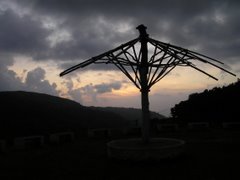This is a letter that I'm emailing to members of the task force setup by MHRD to look into shortage of faculty in our universities. I'm also linking this blog post in the email letter. Hence please read and post comments.
Dear Professors,
I came to know from newspaper that the Ministry of HRD has set up a task force to look into shortage of faculty in our universities. I also learn that the task force will design a performance appraisal system for the faculty in such institutions. In this regard I would like to express some comments.
About me :
After completion of my B.Tech in Electronics and Communication from College of Engineering Trivandrum and M.E. in Signal Processing from IISc Bangalore, I have worked in the industry (Private owned) for about a year, then as a lecturer in Government Engineering College Bartonhill, Trivandrum (Kerala State Government Institution) for around 2 years, and then as a lecturer in NIT Calicut (Autonomous Institution under Central Government) for another 2 years. I had resigned from NIT Calicut last July and am currently pursuing my PhD in CSA department, IISc.
The comments that are expressed in this letter are judgments made from my experiences (good and bad) in the above places.
I. On attracting and retaining good people in academia :
Four things that (I believe) will attract and retain good people to academia are
- Entry level qualification requirement,
- Sufficient monetary compensation and career advancement prospects,
- Meaningful work culture and
- Prospect for academic growth.
1. Entry level qualification requirement :Most of the universities, even those with significant undergraduate teaching load, are restricting permanent tenure only to candidates already with a PhD. This single factor alone will reduce the number of academia aspirants by many orders in magnitude since Indian academia looses most of its young brains to the Industry not after PhD but immediately after their under-graduate or post-graduate degrees. Hence, hiking the entry level qualification to improve the quality of academia is a short sighted strategy. Instead, our academia should catch good people right after their graduation or post-graduation offering them not only a permanent tenure but also a promise for academic growth. I'll elaborate on academic growth part under point 4.
2. Monetary compensation :I think this point is already well discussed (as evident from media reports) and I personally think that the present pay revision has put the compensation at reasonable levels (especially when comparing with the same for our primary school teachers). I even believe that too much money may attract the wrong people into academia.
Career advancement schemes are reasonable in autonomous institutions with flexible cadre ratio and rotation schemes. But the vacancy based promotion scheme still existing in State Government Institutions have left many people disillusioned and forced some of them to quit.
3. Meaningful Work Culture :A meaningful work culture plays a very important role in retaining our best recruits. Shortage of faculty and excessive work load have reached a mutually destructing loop in many universities. I understand that a heavy teaching load is inevitable in the higher education sector in a country like India with limited academic resources and a large knowledge seeking population. But, the the excessive administrative jobs (admissions procedures, campus networking, stock verification, tender tabulations etc.) that come on the already stretched teaching staff in such places is unjustifiable and can be corrected. The failure to recruit permanent non-teaching staff and the attitude towards the value of a faculty member to the system are the key factors contributing to the situation.
Most of the service rules for teaching staff are still modeled on the ones originally designed for administrative jobs and hence comes as a misfit in many occasions. There is no reason why a rule like prohibiting public expression of ones views (to the media for example) should exist in a university. After all, education is not about hiding information. A good academic culture demands, among other things, a flexible work pattern, and freedom of public expression.
4. Prospect for academic growth :Every faculty member should be permitted and encouraged to update his knowledge and skills periodically by going to better centers of learning. The various staff development programmes surely help in this regard. But the most important step in this direction was the FIP/QIP schemes through which a faculty member could avail a deputation to do higher studies in any of the reputed institutions in the country. This scheme is severely being discouraged in many institutions now, NIT Calicut for sure. Instead, these places force the faculty to do their higher studies on a part time basis in their own home institution. This is another short sighted strategy which not only over stretches the faculty, but also forfeits a chance of larger exposure level for the institution. Instead, our universities should encourage their faculty members to do higher studies at the best universities around the world, providing them QIP deputation/Study leave etc.
The third and fourth points are precisely the reasons why I, and also a few other colleagues of mine, had to resign from NIT Calicut.
II. On performance appraisal system for faculty :Personally, I don't believe we can improve the teaching quality of a faculty by providing external incentives. Teaching is a profession in which the rewards are immediate and visible in the eyes of the students in front of us. Instead, what the system should do is to facilitate good teaching by providing a work culture of freedom and interaction.
III. On promoting good research :This again is something which is bound to fail if we think short term. We cannot promote good research by forcing the already stretched faculty to publish. In the medium term, we may encourage and facilitate research among existing faculty by providing funding and time. I'm incompetent to comment on what would encourage good research among faculty. But i guess it should be our level of curiosity and peer recognition.
What is more important is that, we should groom our next generation into serious research and this can be done only by good quality teaching at undergraduate and postgraduate levels. Hence it is critical to ensure that the pressure on faculty to publish, patent etc, should not be at the cost of sacrificing the quality of teaching.
Conclusion :If I can take the liberty to suggest a few action items that might help in the cause, then the list will include
- Keep the entry level qualification to a minimum and provide timely opportunities and encouragement for higher studies.
- Encourage FIP/QIP schemes and also leave/sabbatical for study purposes.
- Recruit sufficient non-teaching staff and give more value to the time of a teacher.
- Amend the service rules to fit to the needs of an open and non-hierarchical academic culture.
- Encourage research among faculty but do not force it so as to make her compromise on the teaching effort.
Dear Sir, I hope at least some of the points mentioned can be considered in your discussions. I'll also publish this letter on my blog so that others can express their comments on it.

